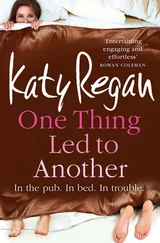YEARS LATER, WHEN SOMEONE brings up the summer Maggie spent in Ocean Park, she remembers it as the season of the bees when she fell a little bit in love with Max. Lucia remembers it as a time of shame. And Richard refuses to remember it at all.
THE DAY AFTER HER HUSBAND’S FUNERAL, Trudy gave away every piece of clothing he owned. She had heard stories of widows who visited the hanging shirts and stacks of sweaters for many months, even years, after their husbands’ deaths, unable to perform the simple task of grabbing and folding and packing away that was required.
That wasn’t her way. Brian was dead. She was under no illusion that there was any other reality. She understood her task was to find a way to live without him. The first thing to do was to get rid of the clothes.
She suspected her grown son was appalled. He was. He knew his mother so little that he attributed her behavior to hard-heartedness when it was really the exact opposite. She ached for Brian in a way that bowed her spine and hollowed her out, and she knew she would feel this way for as long into the future as she could see. The clothes were a reproach— Remember when you used to be happy? they said to her. Well, that’s over now .
So Trudy filled their bedroom with large cardboard boxes bought especially for the job. Never in the past thirty years had she needed packing boxes of any kind. She and Brian had bought this small house when they were newly married and had stayed put. The town of Sierra Villa in the Southern California foothills felt like home the first time they saw it: a tiny business center with all the shops grouped within easy walking distance, one elementary school, one high school, a town library, where Trudy worked. It reminded them both of their Midwestern roots.
Trudy and Brian were people who were not easily dislodged. Neither saw any reason to change what was good enough decades ago — this two-bedroom house with green shutters on Lima Street or their commitment to love, honor, and cherish each other. Until Brian died, nothing had changed.
Now the boxes stood waiting, freshly creased and open-mouthed. There was no way Trudy was going to throw Brian’s monochromatic sweaters, button-down shirts, and threadbare jeans into black garage bags as if they were junk to be picked up with the rest of the trash.
No. She folded and smoothed and lined up the creases in his suit pants, which he rarely wore, and rolled his black socks into tight balls, and evened out the shoelaces on his running shoes, which he laced up every Tuesday, Thursday, and Saturday rain or shine. And she packed each box tightly and secured the top with clear cellophane packing tape, also newly bought. She couldn’t deny the satisfaction of zipping the tape across the top of each box, a tiny piece of the work completed even though the task was one that bit into her heart.
“Mother …?” Her son, Carter, is standing in the doorway.
“What?!” she answers too sharply. He had startled her. With each garment her hands touch, another memory ambushes her, but she doesn’t explain this and her son doesn’t hide his sigh of exasperation.
He’s so short , Trudy thinks again as she does at least once on every visit. Why did he have to take after my mother’s side of the family? Trudy’s maternal grandfather was barely five feet tall. Her maternal grandmother was not much bigger. She remembers them from her childhood as gnome people. Holding hands in their wedding picture her mother kept on the mantel, they looked like the illustrations in her fairy-tale books.
Brian had been tall. Tall and lanky. Angular. The sort of person who never seemed to be able to fold his body comfortably into conventional chairs. Definitely not the sort of person to have a fatal heart attack. Too many people expressed that same opinion to Trudy after the fact. But there it was — an undetected defect in his aorta biding its time, bulging and pressing and finally rupturing.
Carter shows Trudy his packed duffel bag. “I’ve got to go.”
But Trudy doesn’t answer. He’s not sure she’s heard him, because she’s turned her back and is taking in the mounds of clothes, a lifetime of clothes, spread across the bedspread, the dresser, the chair where Brian sat every morning to lace up his shoes.
For his entire life, Carter has found talking to his mother difficult. He often wondered why his parents ever had a child. They seemed like such a self-contained unit, the two of them. Always, always he had felt like an interloper in someone else’s world. Oh, it’s not that they neglected him. Not at all. There were the requisite birthday parties when he was young, and carpooling to school and tennis practice, attendance at his matches when he was in high school, and visits to various potential colleges when the time was right.
It was just that when his parents were together, they were present with each other in a way that never worked itself into his relationship with either one of them.
It was hard to explain. With his first girlfriend, Sabrina, he had tried. “It’s like they’re going through the motions with me … but when they’re together it’s like the house and everything in it, including me, could go up in flame and they would just say, ‘Is it getting warm in here?’ ”
They were naked at the time, and she ran her hand up the inside of his thigh, teasingly. “Oh, Carter’s feeling neglected.”
He shook his head — that wasn’t it, but it was as close as he could come to explaining. No one was surprised when he chose a college as far from sunny California as he could get. It was in New Hampshire, with its brutal winters, that he began to feel less invisible.
“With all the security hassles …” is what he says now, standing in the doorway. He shrugs — an apology of sorts, for what he’s long forgotten, probably his very presence. “They tell you to be at the airport at least an hour—”
She cuts him off. “Of course.” Then, “I should have asked you. Do you want any of Dad’s clothes? He’d want you to have whatever—”
“God, no.” And then softer, “I couldn’t, you know?”
He comes into the room then and awkwardly puts an arm around Trudy’s shoulders. “You’ll be all right.” Trudy doesn’t know if it’s a question or a statement, but she nods. The last thing she wants is for him to worry about her.
As he gets into the waiting taxi, Carter looks up to see his mother’s face in the living room window. She’s getting old , he thinks, but really it’s mostly the grief. Trudy is fifty-seven, but today she feels ancient.
She puts a hand up on the glass. He takes it as a wave and waves back before closing the car door.
And then she’s alone in the house. She knows she should walk back into the bedroom and finish the job she started. Trudy prides herself on finishing jobs. But she can’t. Instead she walks out into the backyard, and it’s here, despite the oppressive heat of late September, that she can draw the first deep breath of the day.
It is here she still feels Brian’s presence. While the house might be small, although it suited them fine, the backyard is enormous. She always called it “Brian’s work of art.” Now she sees it as a living testament to Brian’s kindness because you can’t garden without kindness. Brian taught her that.
The cosmos bloom because he seeded them. The wisteria climbs the arbor over the patio because he planted it more than twenty years ago. The camellia bushes, fifteen feet high now, thrive in the shade from the large oak tree.
The Costa Rican butterfly vines cover the back fence with purple-winged flowers set against dark green, heart-shaped leaves. Trudy remembers he had to special-order them and that it was touch and go before they took off.
Читать дальше












